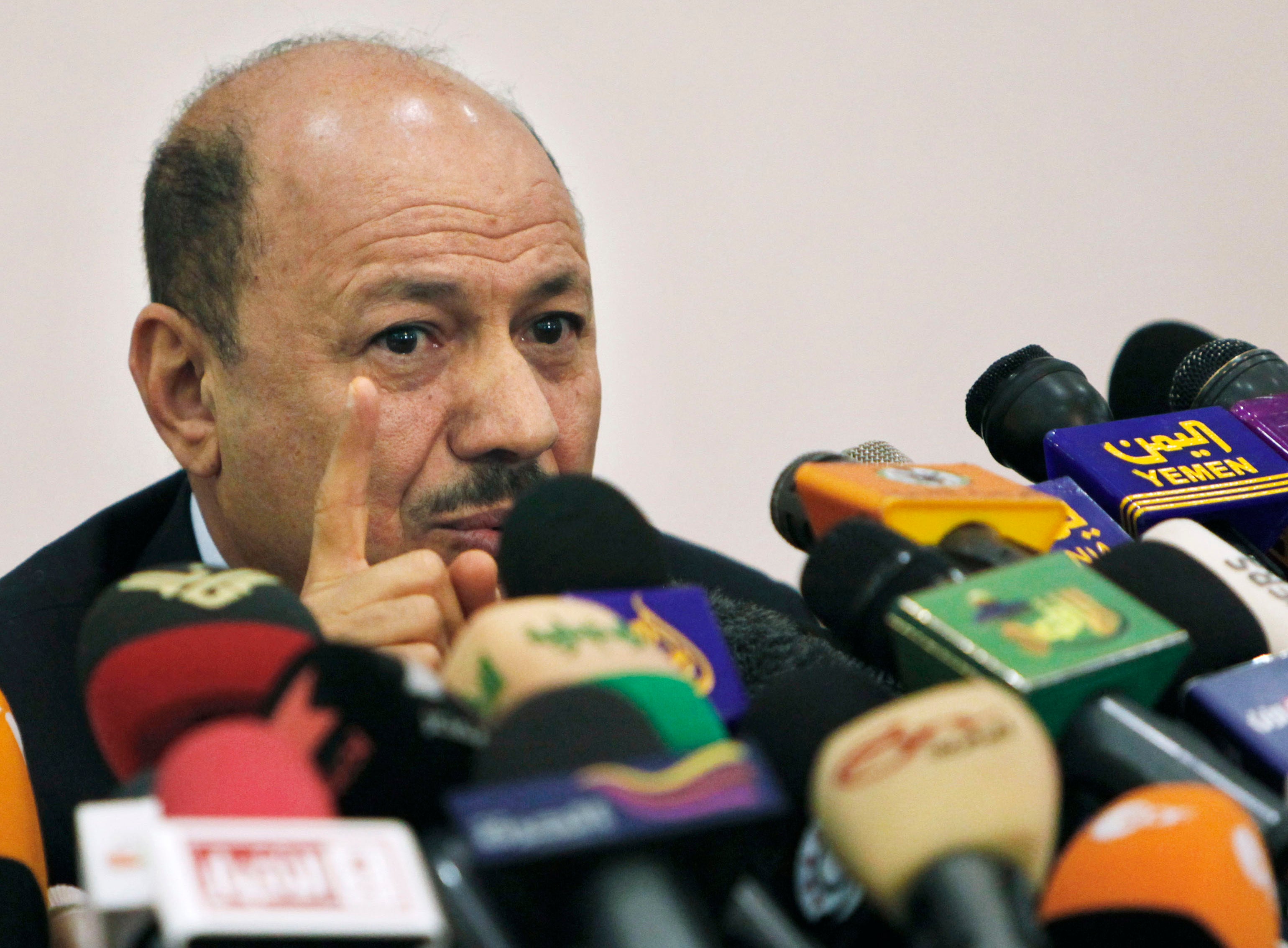Yemen swears in presidential body after Hadi stepped aside
State-run media reports that Yemen’s internationally recognized presidential council has been sworn in in the southern port city of Aden

Your support helps us to tell the story
From reproductive rights to climate change to Big Tech, The Independent is on the ground when the story is developing. Whether it's investigating the financials of Elon Musk's pro-Trump PAC or producing our latest documentary, 'The A Word', which shines a light on the American women fighting for reproductive rights, we know how important it is to parse out the facts from the messaging.
At such a critical moment in US history, we need reporters on the ground. Your donation allows us to keep sending journalists to speak to both sides of the story.
The Independent is trusted by Americans across the entire political spectrum. And unlike many other quality news outlets, we choose not to lock Americans out of our reporting and analysis with paywalls. We believe quality journalism should be available to everyone, paid for by those who can afford it.
Your support makes all the difference.Yemen’s internationally recognized presidential council was sworn in Tuesday in the southern port city of Aden, state-run media reported.
The swearing-in took place before the parliament in a ceremony attended by foreign ambassadors and the U.S. and U.N. envoys to Yemen, SABA news agency said.
Aden serves as the interim seat of the internationally recognized government since the Houthi rebels seized the capital of Sanaa in 2014, setting off Yemen’s long-running civil war.
The presidential council was appointed earlier this month after former President Abed Rabbo Mansour Hadi stepped aside. Hadi transferred his powers and those of his vice president to the council, which will run the country and lead peace talks with the Houthis.
Hadi's move came during concerted international and regional efforts to end the conflict.
The move angered the Iran-backed Houthis as it was meant to unify the anti-Houthi camp after years of infighting and disputes. It came as the Houthis and the government embarked on a 60-day truce brokered by the U.N. earlier this month.
The council is chaired by Rashad al-Alimi, an adviser to Hadi and former interior minister with the government of late strongman Ali Abdullah Saleh. He has close ties to Saudi Arabia.
Al-Alimi called on the international community to pressure the Houthis to engage in peace efforts because he said the rebels were still attacking the central city of Marib and other government-held areas despite the truce.
The council is committed to “end the (Houthi) coup and the war” and establish “fair and permeant peace that preserves the state and its constitutional institutions,” he said.
Parliament Speaker Sultan al-Borkani echoed the same message. However, he warned that they were ready to continue fighting after the unification of the anti-Houthi camp.
“This is our opportunity to take the road of fair and honorable peace,” he said. “Our hands are still extended (for peace), and our weapons are ready at the same time.”
There was no immediate comment from the Houthis.
The council has seven other members, including Aydarous al-Zubaidi, head of the secessionist Southern Transitional Council — an umbrella group of heavily armed militias propped up by the United Arab Emirates since 2015.
Also on the council are Sheikh Sultan al-Aradah, the powerful governor of energy-rich Marib province, and Tariq Saleh, a militia leader and nephew of the late president with close ties to the UAE.
Another member is Abdel-Rahman Abu Zarah, commander of the UAE-backed Giants Brigades, which played a crucial role recently in repelling the Houthi offensive on the central city of Marib.
The Houthis are backed by Iran while the government forces are aided by a Saudi-led coalition that launched an air campaign in 2015 to try to restore the internationally recognized government.
The war killed over 150,000 people and pushed Yemen to the brink of famine.